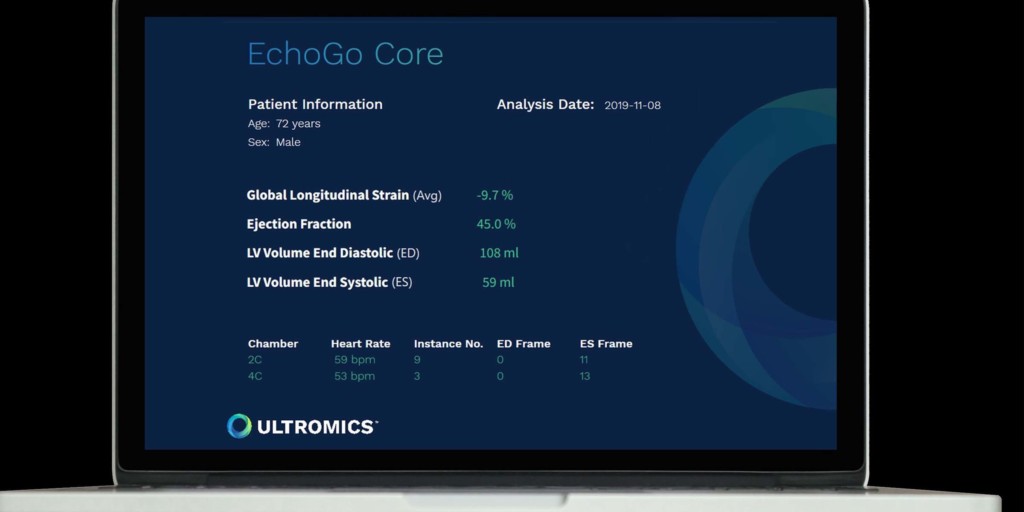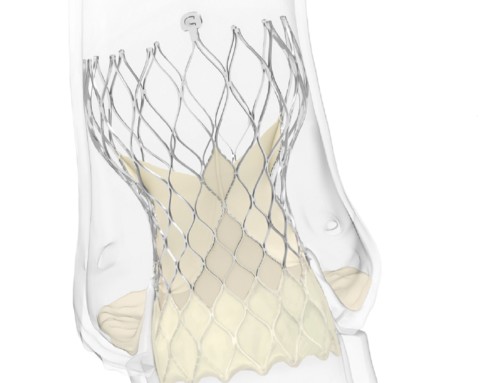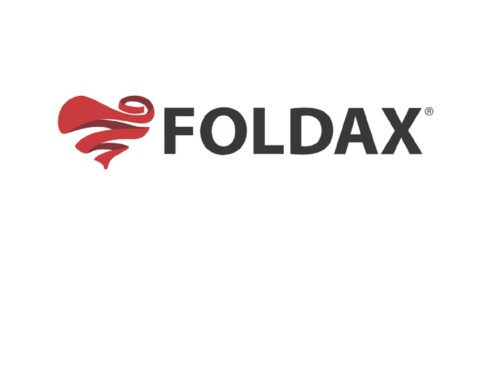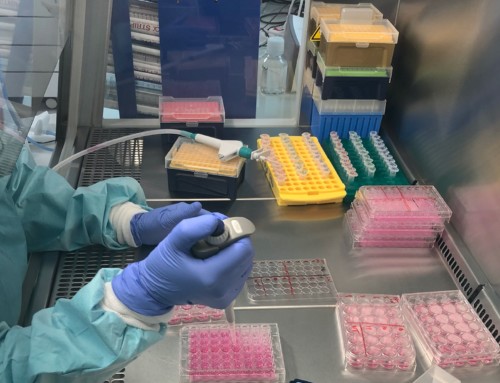
EchoGo
Ultromics has received 510(K) clearance from the FDA for its image analysis system, EchoGo Core. According to a press release, the clearance is a major milestone for Ultromics and enables the business to make EchoGo available to clinicians and healthcare providers in the USA. EchoGo applies artificial intelligence (AI) to automate the analysis and quantification of ultrasound-based heart scans.
Traditionally, echocardiography has relied on the expert eye of clinicians, with years of experience, measuring the anatomical structures and identifying the disease, a potentially time-consuming and highly variable process. By automating the process and applying its AI analysis to look in greater detail at the scans, the press release states, EchoGo enables clinicians to interpret echocardiograms efficiently and accurately and assists in their decision-making.
EchoGo uses AI to calculate left ventricular ejection fraction, left ventricular volumes and, for the first time for an AI application, automated cardiac strain. The press release reports that the system has been years in development—from the first trial being set-up in 2011 to Ultromics spinning out of the University of Oxford in 2017, and now achieving FDA clearance. The next stage of growth is commercialising the product and making it available to clinicians.
Ross Upton, founder and CEO of Ultromics, says: “This is an incredibly exciting step towards the future of healthcare, EchoGo will help clinicians make more accurate and informed decisions to improve patient care delivery. It is truly a watershed moment for Ultromics. Strain has shown to be very valuable in cardiovascular diagnostics and has been demonstrated in published studies to be linked with earlier detection of disease and improved patient outcomes. Ultromics will be the first to use AI for automated strain analysis which is applicable to 60 million scans per year. Crucially, strain is also becoming reimbursable from January 2020 in the US EchoGo allows clinicians across a wide range of experience to rapidly obtain accurate and repeatable calculations of strain parameters, assisting them in interpretation of echocardiograms.”
He adds that more developments are planned in 2020, including EchoGo Pro. “It will be the first AI system able to predict cardiac disease from echocardiography. We are also planning to expand into other geographic regions including Europe and Asia. Our goal is to improve patient outcomes through earlier detection of cardiac disease,” Upton says.
Ultromics has partnerships with leading cardiology clinical centres in the USA and 30 NHS centres in the UK. Through this, it is continuously optimising its scanning algorithms by analysing the archive of scans held by these centres. The pipeline of AI algorithms underpinning EchoGo was built using thousands of images from a carefully curated dataset, from one of the largest echo studies of its kind.
EchoGo is a vendor-neutral platform, which harmoniously integrates into the medical imaging environment, seamlessly providing clinicians with results as part of their routine diagnostic workflow. This ensures fast, efficient and accurate AI-assisted echocardiogram analysis, to enable the highest quality patient care in healthcare institutions globally.





